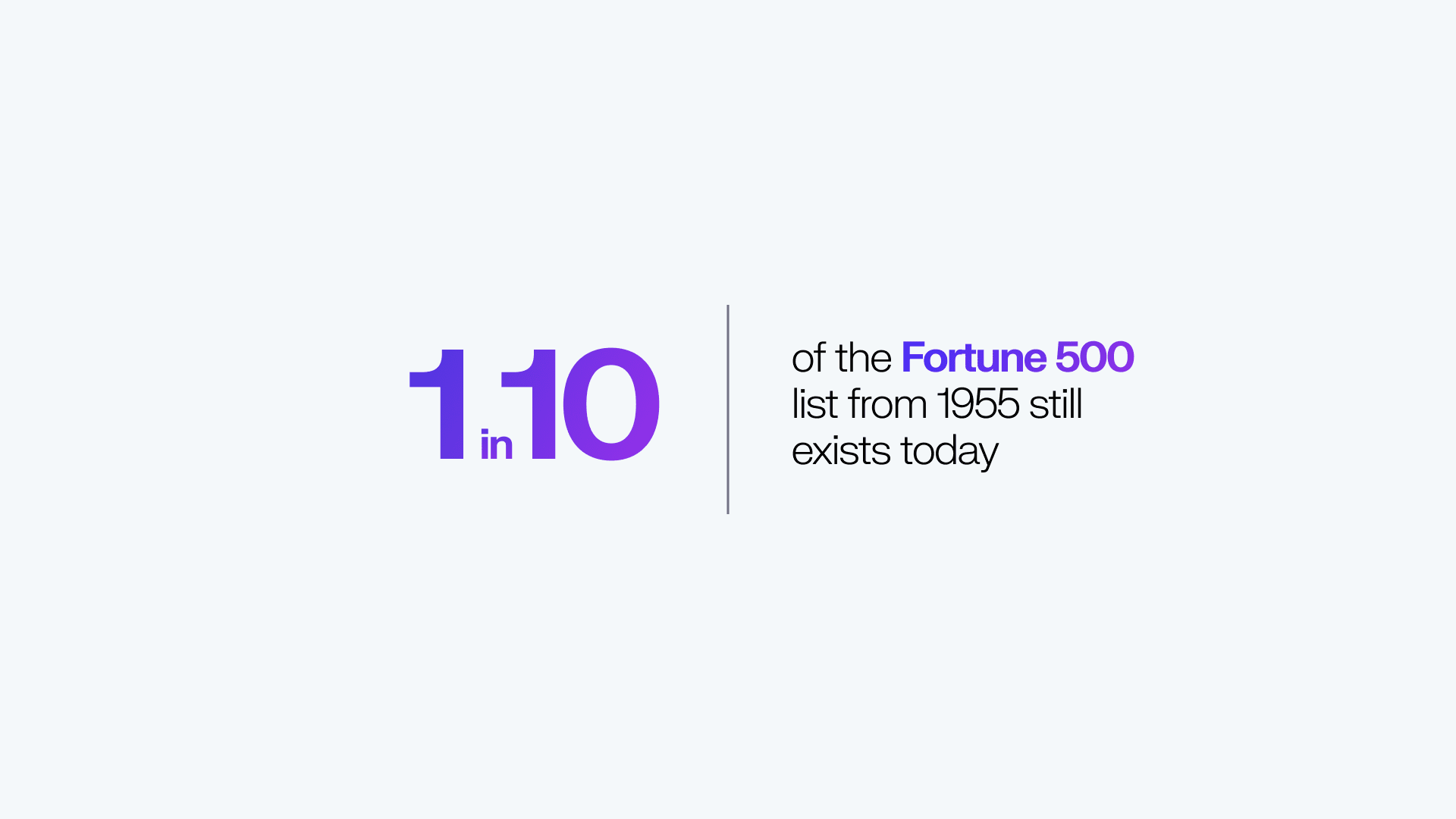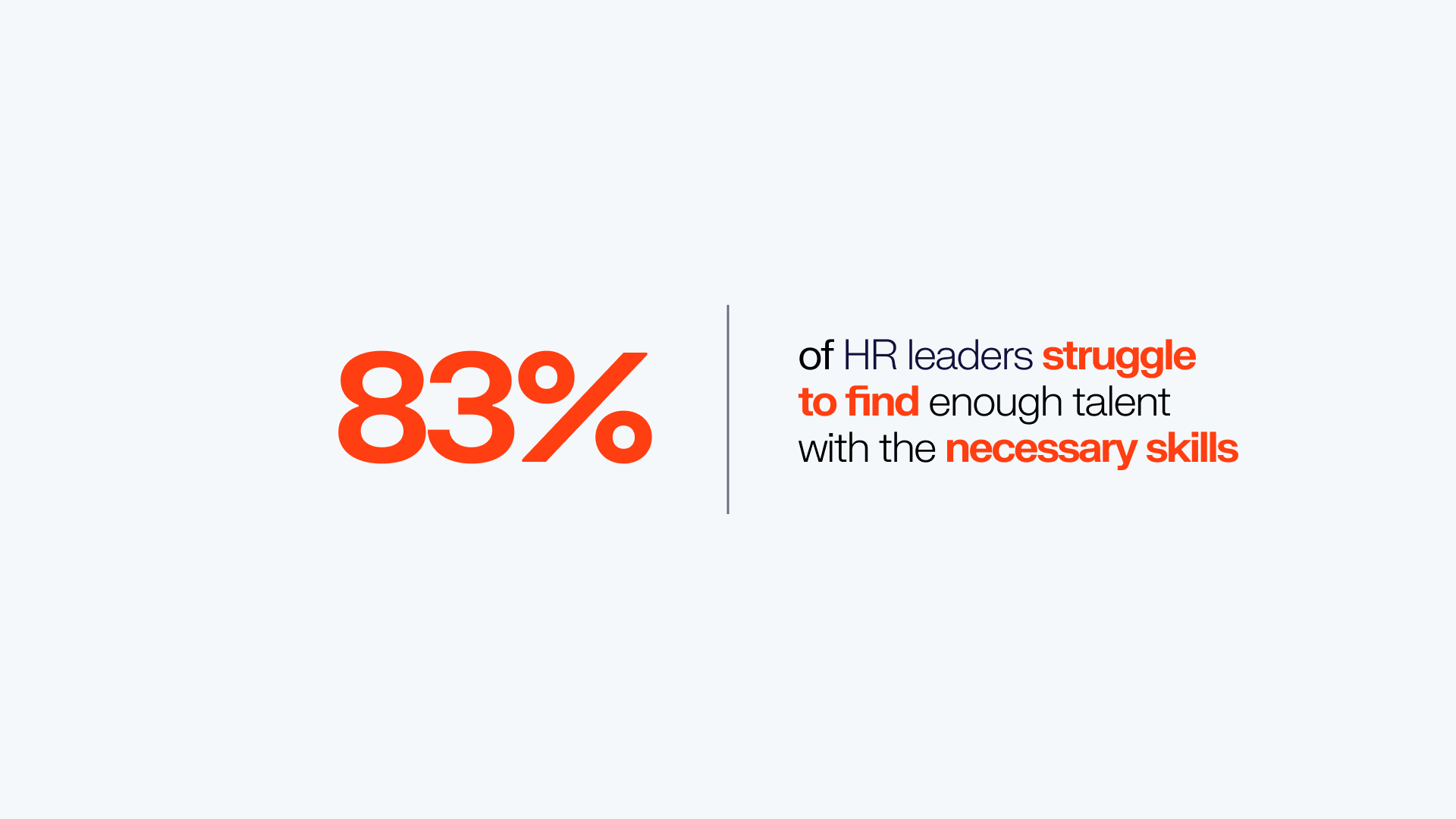How Is Technology Elevating The Role Of HR?
HR professionals face fast-changing business demands, new demands from the workforce, and exciting technological innovation. So they have been thrust into a challenging position: how can we do our best work, if we don’t also change and innovate?
The pressure is immense. They must attract candidates in a tight labor market, engage employees in a hybrid world, and stop the most productive teams from burning out. Luckily, there are solutions to all of these challenges – technological solutions, that can enhance and augment the human intelligence at the heart of HR.
Businesses who recognize the strategic importance of HR must ensure they have the right tools to succeed.
Remember your talent strategy is key to business success. 🗝️
Talent is, and ought to be, the biggest issue on a CEO’s mind. Why? Because your workforce will constitute the difference between keeping up – and disappearing entirely.

In every industry, the pace of change has quickened, forcing companies to make huge bets in order to survive and compete: going into new markets, building new products, and transforming their digital operations.
These big economic bets cannot be brought to bear without new capabilities. Companies are looking for skillsets they never needed before. They are often seeking skills that are not only hard to find, but don’t even exist.

The biggest risk to any business today is Talent Risk – not having the right people, with the right skills, in the right roles, at the right time. This is why businesses urgently require HR to become a strategic function: to make bets, manage risks, and directly impact business outcomes.
In every company, HR and talent teams can help unlock human potential, minimize risk, and maximize investments – in technology, and in people.
HR cannot support the business effectively without AI. 🤖
One of the biggest opportunities for HR lies in the power of AI. As the team responsible for thinking deeply about the broader implications of AI in the workforce – how to counter employee’s fears, how to train staff in the proper use of AI tools, how to reorganize work where menial tasks can be automated – HR cannot ignore the seismic shift AI has caused.
But the potential of AI within HR is also vast and transformative. It allows HR functions to deliver more value to their organizations, faster – in a time when it’s never been more essential.
Move faster
AI-driven tools can sift through vast amounts of data to identify the best candidates swiftly and accurately. Suddenly, you can forecast which candidates are most likely to succeed in specific roles, improving the quality of hires and reducing time-to-hire. AI algorithms can analyze resumes and match them with job descriptions, highlighting top candidates, widening talent pools, and uncovering hidden gems.
With AI, you can predict future workforce trends and needs, and proactively address potential issues before they arise. This includes forecasting skill gaps, predicting employee turnover, and identifying factors driving employee performance.
“We can actually open up capacity within the HR function to do what we’ve talked about for years, where we are strategic advisors, coaches, counselors across the business… and this is where I think AI is going to change it drastically for HR.” – Sam Hammock, EVP, Chief Human Resources Officer, Verizon
Find efficiencies
Streamlining administrative tasks is another significant benefit. Automating repetitive tasks such as payroll processing, benefits administration, and compliance reporting frees HR professionals to focus on more strategic activities.
“Being able to free that [time] up so that all of our recruiters actually spend more time with candidates, with stakeholders, creating insights, becoming thought leaders, becoming the experts in their space, I think is a really amazing thing.” – Katharine Rooney, VP Talent Attraction & Acquisition, Mimecast
Incorporating AI into HR processes not only boosts efficiency but also enables HR to provide more strategic value to the business. By leveraging AI, HR can gain deeper insights into their workforce, make data-driven decisions, and contribute significantly to the overall success of the organization.
Boost fairness
Furthermore, AI helps reduce unconscious bias in recruitment and promotion decisions by focusing on objective data rather than subjective opinions. This ensures a more diverse and inclusive workforce, which has been shown to drive better business outcomes. However, it's essential to continuously monitor and audit AI systems to ensure they remain fair and unbiased.
Ultimately, the integration of AI in HR is not about replacing the human touch but augmenting it. AI can handle the heavy lifting of data processing and analysis, allowing HR professionals to focus on what they do best: understanding and nurturing the human element within their organizations.
By embracing AI, HR can transform from a support function to a strategic partner, driving innovation and growth in the ever-evolving business landscape.
Human Resources: the expert in Humans 🧠
Of course, we could focus only on the immense CHANGE in the HR function – but there is plenty that remains the same. The original remit of HR – advocating for workers, and managing employee development – has simply re-emerged (after years of focusing almost exclusively on finding efficiencies through “restructuring”).
As HBR has noted, if CEOs understood the true value of human capital – that is, the true cost of hiring someone, and the true cost of losing someone – they might be persuaded to rethink their decades-old approach.
And this is the bit that is truly new. The data, insights and technology at our fingertips today means that we can not only make better informed decisions about every aspect of the talent lifecycle, we can convince the unconvinced of the merits of our strategies. With AI tools and advanced analytics, HR is now equipped to provide concrete evidence to support their initiatives, driving home the point that investing in people is not simply a cost, but a critical component of a successful business strategy.
“The most important thing I think any People or HR function can do is making sure you’re solving the problems for the business that are needed and relevant, but you also have that advisory and that look ahead to help the business prepare for what's next, and what we may not even be thinking about.” – Nigel Williams, Global Talent Acquisition Leader, BlackRock
As HR evolves, it maintains its core mission: understanding and championing the human element within organizations. By embracing technological advancements and adopting a strategic approach, HR can continue to be the driving force behind organizational success in an ever-changing business landscape.